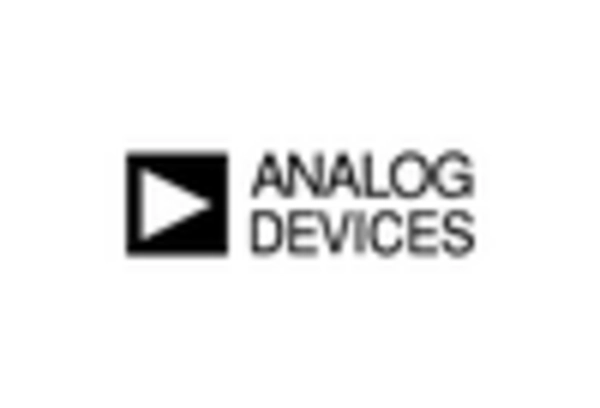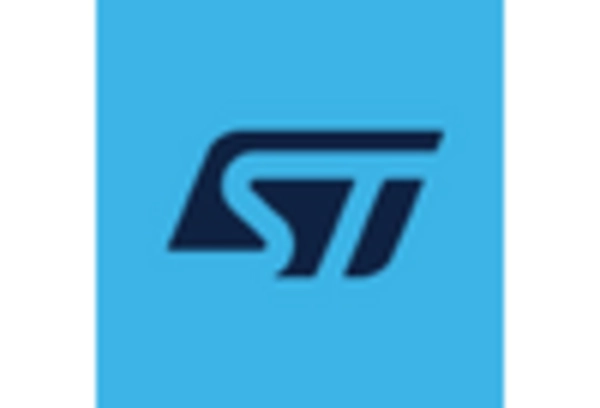Expansion of Automotive Applications
The automotive industry significantly influences the analog semiconductor market, particularly with the rise of electric vehicles (EVs) and advanced driver-assistance systems (ADAS). As of 2025, the automotive sector is expected to account for around 25% of the total semiconductor market in the US, with analog components essential for functions such as battery management, sensor interfacing, and power distribution. This expansion suggests a growing reliance on analog semiconductors to support the increasing complexity and safety requirements of modern vehicles, thereby driving innovation and investment in this segment of the market.
Advancements in Industrial Automation
The analog semiconductor market benefits from the ongoing advancements in industrial automation and smart manufacturing processes. As industries adopt IoT technologies and automated systems, the demand for analog devices that enable precise control and monitoring of machinery rises. In 2025, the industrial automation sector is projected to represent a substantial portion of the semiconductor market, with analog components crucial for signal conditioning and data acquisition. This trend indicates a shift towards more efficient production methods, where analog semiconductors play a vital role in enhancing operational efficiency and reducing downtime.
Growing Demand for Consumer Electronics
The analog semiconductor market experiences a notable surge in demand driven by the increasing consumption of consumer electronics in the US. With the proliferation of smartphones, tablets, and smart home devices, the need for analog components, which facilitate signal processing and power management, becomes critical. In 2025, the consumer electronics sector is projected to contribute approximately $200 billion to the overall semiconductor market, with analog devices playing a pivotal role. This trend indicates a robust growth trajectory for the analog semiconductor market, as manufacturers strive to meet the evolving needs of consumers for enhanced functionality and performance in their electronic devices.
Increased Focus on Renewable Energy Solutions
The transition towards renewable energy sources significantly impacts the analog semiconductor market, particularly in applications related to solar inverters and wind turbine control systems. As the US aims to increase its renewable energy capacity, the demand for analog devices that manage power conversion and grid integration is likely to rise. By 2025, the renewable energy sector is expected to contribute a notable share to the overall semiconductor market, highlighting the importance of analog semiconductors in facilitating the efficient operation of these technologies. This trend suggests a growing market opportunity for manufacturers specializing in analog solutions tailored for energy applications.
Rising Importance of Telecommunications Infrastructure
The analog semiconductor market is poised for growth due to the increasing investments in telecommunications infrastructure, particularly with the rollout of 5G networks across the US. Analog components are essential for signal amplification, filtering, and modulation in communication systems. As of 2025, the telecommunications sector is anticipated to represent a significant portion of the semiconductor market, driven by the demand for higher data rates and improved connectivity. This trend indicates that the analog semiconductor market will likely benefit from the ongoing expansion and modernization of communication networks, positioning it as a critical player in the telecommunications landscape.












